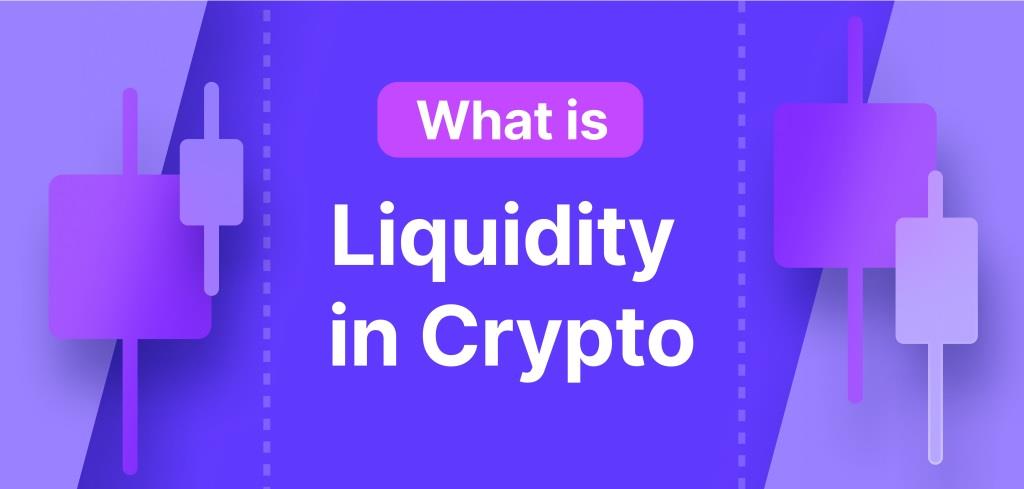Economy
Britcoin: Is the UK Economy Getting Closer to Launching Its Digital Currency?

Under plans being drawn up by the Bank of England and the Treasury in the UK, consumers could be using a new digital pound, widely dubbed as Britcoin, by the end of the decade. Rather than replacing cash and bank deposits, Britcoin would exist alongside them.
This digital currency would not be a cryptocurrency or a crypto asset like those seen within the private sector, as it would be issued by a central bank. It would instead be a Central Bank Digital Currency (CBDC), denominated in pounds, where £10 of Britcoin would always hold the same value as a £10 note. The hope is that the Bank’s Britcoin would be more stable than Bitcoin, which is famed for being incredibly volatile.
As of early February of this year, the UK government is speeding up its response to the rise of privately issued cryptocurrencies and stable coins, beginning a four-month public consultation process on Britcoin. Members of the public are being invited to give their views on the digital pound as part of the research and development being carried out. The Bank and the Treasury hope to reassure the public that a state-backed digital currency will be as safe as cash, particularly after 2022 saw the collapse of crypto exchange FTX, and the massive comedown of the crypto market that then followed.
It is easy to see why the case for the UK having a digital pound in the future continues to grow, especially as the world around us is becoming more and more digitalised. You just need to go online and you can see an abundance of businesses and customers alike taking advantage of the digitalised culture.
Crypto casinos, for example, are becoming increasingly popular in the online casino world. Here, customers can use digital currency to play casino games like roulette, blackjack and, according to this article, the fan favourite slots. And it isn’t just businesses. The education sector is also jumping on the digital bandwagon, with classroom teaching adopting more and more digital tools and methods to benefit both the teachers and the pupils. Digital transformation is rife across the board, and the UK economy is not wanting to be left behind.
While the government might still decide against going ahead with Britcoin, momentum is definitely building to back the idea, with many arguing that a digital pound will be needed at some point in the future. The hope is that it would provide a new way to pay, help both businesses and the public, and better protect financial stability.
If it was introduced, it would be interchangeable with cash and bank deposits, and would be able to be used to make payments both in person and online. According to the Treasury, however, there would be a limit on the amount of Britcoin people could hold during the introductory phase, in a hope to strike a balance between encouraging use and managing the risks – one of these risks being the potential for large and rapid outflows from banking deposits into Britcoin.
During the latest consultation, officials will explore the technical issues involved with creating this CBDC before making a final decision, which should be due in 2025. If the go-ahead does happen, the Bank and Treasury hope that we could see Britcoin held in digital wallets by the end of the decade.
While there are many arguments for the case of Britcoin, there are a number of implications that the technical team will need to carefully consider. Changing the way a country uses money is a rather profound and colossal decision, and the digital pound would be subject to rigorous standards of privacy and data protection, with a decision largely based on future developments in money and payments.
The UK isn’t the only country looking into using its own official digital currency, the US Federal Reserve and the European Central Bank are also considering it. The UK plans are, however, at a more advanced stage, and the next couple of years will be really telling about whether the UK does see the plan through. And if they do, whether other countries will follow suit.
Economy
Tinubu Seeks World Bank Support to Boost Agriculture, Economic Reforms

By Adedapo Adesanya
President Bola Tinubu has called on the World Bank to support Nigeria’s ongoing economic reforms, with a focus on agriculture, youth employment, and private sector growth.
The president sought this assistance when he received a delegation from the World Bank led by Anna Bjerde, Managing Director of Operations, at the State House, Abuja on Tuesday, noting that the bank’s support will boost his administration’s strategy to strengthen the economy and expand opportunities for Nigerians.
“Since we went into this tunnel of reform, we have our hands on the power and we’re never going to look back. Initially, it was painful and difficult, but those who win are not the ones who give up in difficult times,” Mr Tinubu said.
The president highlighted the importance of mechanization and modernization of agriculture to increase productivity and create opportunities for Nigeria’s large young population.
“We have mechanization centers to help farmers with improved seedings and fertilizers to enhance their programs. The goal is to move farmers from small-scale holders to large cooperatives that can create opportunities for Nigerians,” he explained.
Mr Tinubu also pointed to the petrochemical sector and other domestic industries as areas where the government is working to improve outputs and strengthen local markets. He stressed that reforms are continuous and must be grounded in transparency, accountability, and stability.
“The first reaction to reforms was high inflation, but it has come down dramatically, and the Naira is now stable. We want to help investors operate with ease, reduce bureaucracy, and develop the skills of our people,” he said.
On her part, Ms Anna Bjerde commended the administration for its consistent and steady approach to reforms over the past two years. She highlighted that Nigeria has become a global example of reform implementation, giving confidence to investors and policymakers worldwide.
“The results achieved in the last two years are commendable. Your steady communication of the importance of reforms has given confidence and clarity, and there is no turning back,” Ms Bjerde said.
She emphasized the importance of job creation, particularly for Nigeria’s youth, noting that Africa’s young population is growing rapidly and that SMEs are central to employment generation.
“Agriculture is a huge part of the economy and a major employer. Innovations in mechanization, cooperatives, value-chain development, and infrastructure can be scaled to create more opportunities,” Ms Bjerde said.
She also highlighted the World Bank’s financial support for Nigeria, including public sector financing of $17 billion, private sector support of $5 billion through the International Finance Corporation (IFC), and investment guarantees exceeding $500 million. These instruments are aligned with Nigeria’s reforms, including trade, digital initiatives, and inflation management, to stimulate private sector growth and human development.
“We want to work with Nigeria to accelerate growth, improve access to finance for SMEs, and support early childhood development as part of a comprehensive human development strategy,” she added.
Economy
OTC Securities Exchange Rises 0.96% to 3,641.30 Points

By Adedapo Adesanya
The NASD Over-the-Counter (OTC) Securities Exchange appreciated by 0.96 per cent on Tuesday, February 3, boosting the Unlisted Security Index (NSI) by 34.54 points to 3,641.30 points from the 3,606.76 points it ended a day earlier.
Equally, the market capitalisation of the trading platform was up during the session by N20.67 billion to end N2.178 trillion from the N2.158 trillion it ended on Monday.
The expansion witnessed by the OTC securities exchange yesterday was buoyed by the gains printed by four stocks on the bourse, with Central Securities Clearing System (CSCS) Plc up by N4.00 to sell at N44.00 per unit versus the previous day’s N40.00 per unit.
Further, Air Liquide Plc increased by N1.86 to end at N20.49 per share compared with Monday’s closing price of N18.63 per share, Afriland Properties Plc appreciated by 35 Kobo to N14.00 per unit from N3.65 per unit, and UBN Property Plc added 1 Kobo to settle at N2.20 per share, in contrast to the preceding day’s N2.21 per share.
On the flip side, there were two price losers led by FrieslandCampinaWamco Nigeria Plc, which shed 4 Kobo to close at N63.50 per unit compared with the previous day’s N63.54 per unit, and Geo-Fluids Plc lost 3 Kobo to finish at N6.81 per share compared with the N6.84 per share it traded in the preceding session.
Data showed that the volume of securities bought and sold by investors grew by 82.5 per cent to 7.0 million units from 3.9 million units, and the value of securities jumped by 5.2 per cent to N37.9 million from N36.0 million, while the number of deals decreased by 15 per cent to 34 deals from 40 deals.
CSCS Plc remained the most active stock by value (year-to-date) with 15.9 million units sold for N649.0 million, the second spot was taken by FrieslandCampina Wamco Nigeria Plc with 1.7 million units worth N110.9 million, while the third position was occupied by Geo-Fluids Plc with the sale of 11.1 million units for N73.1 million.
The most traded stock by volume (year-to-date) was still CSCS Plc with 15.9 million units exchanged for N649.0 million, followed by Mass Telecom Innovation Plc with 12.7 million units sold for N5.1 million, and Geo-Fluids Plc with 11.1 million units traded for N73.1 million.
Economy
Naira Firms to N1,372/$1 at Official Market, N1,455/$1 at Black Market

By Adedapo Adesanya
The Naira firmed up against the US Dollar in the various segments of the foreign exchange (FX) market on Tuesday, February 3, 2026, on the back of improved forex liquidity.
In the black market window, the local currency improved its value against the Dollar during the session by N10 to sell for N1,455/$1 compared with the previous day’s rate of N1,465/$1, and at the GTBank FX counter, it gained N33 gain to close at N1,386/$1 versus Monday’s closing value of N1,419/$1.
In the Nigerian Autonomous Foreign Exchange Market (NAFEM), the domestic currency appreciated against the greenback by N17.45 to trade at N1,372.91/$1, in contrast to the preceding session’s N1,390.36/$1.
In the same vein, the Nigerian currency chalked up N21.92 against the Pound Sterling yesterday in the official market to quote at N1,877.59/£1 compared with the N1,899.51/£1 it was exchanged a day earlier, and gained N24.76 against the Euro to settle at N1,619.76/€1 versus N1,644.52/€1.
The appreciation seen indicates that available supply is mopping up demand even without any intervention from the Central Bank of Nigeria (CBN) in recent weeks, showing that market-driven currency framework is driving a stronger Naira.
Enhanced price discovery following plans by the apex bank to undertake a comprehensive revamp of the FX manual is acting as a pillar of support.
At a recent forum, the Deputy Governor, Economic Policy, CBN, Mr Muhammad Sani Abdullahi, disclosed that the bank was revamping the manual, a key regulatory document used by banks for export proceeds and other foreign trade-related transactions.
According to him, the document was already undergoing significant reforms aimed at aligning market operations with current economic realities.
Mr Abdullahi explained that the revised manual would introduce clearer rules, stronger oversight and improved processes to support transparency and efficiency in the FX market.
He said the reforms are expected to close loopholes, reduce uncertainty for market participants, and support a more orderly functioning of the foreign exchange system.
Also, Nigeria’s external reserves, which provide the CBN with the capacity to support the Naira, have continued to rise, reaching $46.59 billion as of 2 February 2026, according to CBN data.
In the cryptocurrency market, most prices still remained down as sentiment among short-term traders remaining cautious after thin liquidity and heavy liquidations pushed prices sharply lower.
Global crypto investment products saw $1.7 billion in outflows last week, marking the second consecutive week of heavy redemptions, with Solana (SOL) down by 5.2 per cent to $98.41.
Further, Bitcoin (BTC) depreciated by 2.4 per cent to $76,638.44, Binance Coin (BNB) slumped by 2.0 per cent to $761.78, Ethereum (ETH) dropped by 1.9 per cent to $2,277.16, Ripple (XRP) declined by 0.6 per cent to $1.60, and the US Dollar Tether (USDT) lost 0.1 per cent to sell at $0.9985.
However, Dogecoin (DOGE) improved by 1.7 per cent to $0.1084, Cardano (ADA) expanded by 1.2 per cent to $0.2868, and Litecoin (LTC) increased by 0.9 per cent to $60.63, while the US Dollar Coin (USDC) remained unchanged at $1.00 apiece.
-

 Feature/OPED6 years ago
Feature/OPED6 years agoDavos was Different this year
-
Travel/Tourism9 years ago
Lagos Seals Western Lodge Hotel In Ikorodu
-

 Showbiz3 years ago
Showbiz3 years agoEstranged Lover Releases Videos of Empress Njamah Bathing
-

 Banking8 years ago
Banking8 years agoSort Codes of GTBank Branches in Nigeria
-

 Economy3 years ago
Economy3 years agoSubsidy Removal: CNG at N130 Per Litre Cheaper Than Petrol—IPMAN
-

 Banking3 years ago
Banking3 years agoSort Codes of UBA Branches in Nigeria
-

 Banking3 years ago
Banking3 years agoFirst Bank Announces Planned Downtime
-

 Sports3 years ago
Sports3 years agoHighest Paid Nigerian Footballer – How Much Do Nigerian Footballers Earn






















